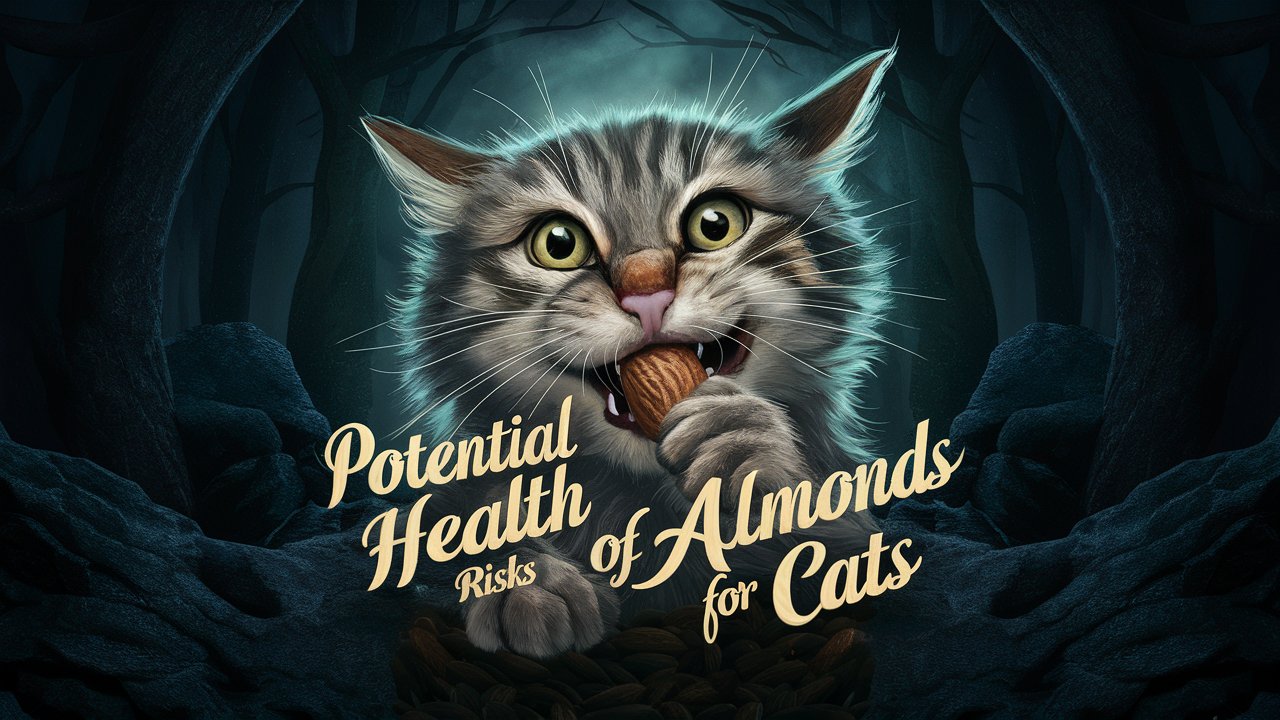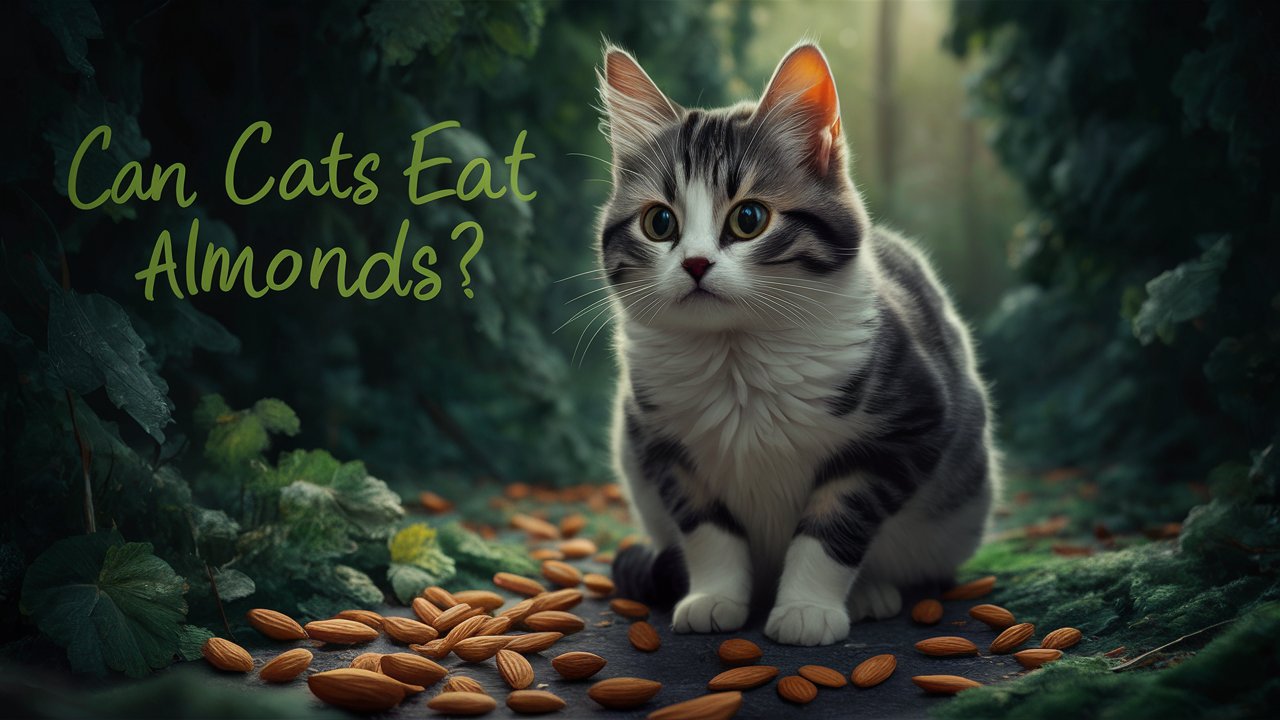
Can Cats Eat Almonds?
People wonder if it’s safe to share certain snacks with your feline friend, and almonds are no exception. Can cats eat almonds? This is a crucial question because while almonds are a popular snack for humans, they may not be suitable for our pets. Feeding almonds to cats can lead to various health issues, so it’s important to understand the potential risks involved.
Almonds, whether raw, roasted, or in the form of almond butter, are not a recommended treat for cats. One of the primary concerns is that almonds are difficult for cats to digest. Unlike humans, cats have a digestive system that is designed to process a diet primarily consisting of meat. Therefore, feeding almonds to cats can cause gastrointestinal distress, including vomiting, diarrhea, and abdominal pain.
Are Almonds Toxic to Cats?
While almonds are not classified as highly toxic to cats like some other foods (such as chocolate or onions), they still pose a significant risk. Almonds contain a compound called cyanogenic glycoside, which can break down into cyanide when ingested. Although the amount of cyanide in a single almond is unlikely to cause severe harm, consuming multiple almonds or even just one regularly could be dangerous.
In addition to the potential toxicity, almonds also present a choking hazard, especially if they are whole. Cats have small throats, and almonds can easily become lodged, leading to choking or an obstruction in the digestive tract. This can be a life-threatening situation, if it happens contact your vet urgently.

Potential Health Risks of Almonds for Cats
Aside from the risk of cyanide poisoning and choking, almonds are high in fat, which can lead to other health issues in cats. A diet high in fat can lead to digestive problems. Cats are obligate carnivores, meaning their bodies are designed to thrive on a diet rich in animal proteins and low in carbohydrates and fats. Feeding them high-fat foods like almonds can disrupt their nutritional balance.
Another concern is the presence of salt and other additives in flavored or seasoned almonds. Salted almonds, in particular, can lead to sodium ion poisoning in cats, which can cause symptoms such as excessive thirst, urination, vomiting, diarrhea, and even seizures.
What Will You Do If Your Cat Eats Almonds
If your cat accidentally eats an almond, don’t panic, but do monitor them closely for any signs of distress. Symptoms to watch for include vomiting, diarrhea, lethargy, difficulty breathing, or any unusual behavior. If you feel any of these symptoms, contact your vet.
In cases where a large number of almonds have been consumed, or if your cat appears to be choking, it is crucial to seek emergency veterinary care as soon as possible. Your vet may need to perform procedures to remove the almonds or provide treatment to manage any symptoms that arise.
Safe Alternatives to Almonds
While almonds may not be safe for cats, there are plenty of other treats that you can offer your feline friend. Consider cat-safe treats that are specifically formulated for their dietary needs. These treats are usually made from meat or fish and are designed to be easily digestible.
You can also give your cat small amounts of cooked chicken, turkey, or fish as a treat. Always ensure that these foods are plain, without any added seasoning or sauces, as some ingredients can be harmful to cats.

Conclusion: Can Cats Eat Almonds?
So, can cats eat almonds? The answer is no; almonds are not a safe or suitable treat for cats. They pose several health risks, including potential toxicity, choking hazards, and digestive issues. As a responsible cat owner, it’s important to stick to cat-friendly foods and treats that support your pet’s health and well-being. Always discuss with your vet before including new foods into your cat’s diet to make sure, they are safe or not.
FAQS: Can Cats Eat Almonds?
Is it okay for cats to eat almonds?
No, it is not okay for cats to eat almonds. Almonds can be difficult for cats to digest and can cause digestive issues like vomiting and diarrhea. They also pose a choking hazard and could contain compounds that are harmful to cats, such as cyanogenic glycoside, which can break down into cyanide.
What nuts are toxic to cats?
Some nuts, like macadamia nuts, are highly toxic to cats and should be avoided completely. Other nuts, such as walnuts and pecans, are also dangerous because they can cause gastrointestinal upset or even pancreatitis due to their high-fat content. It’s best to avoid giving your cat any kind of nuts.
Can cats be allergic to almonds?
Yes, cats can be allergic to almonds, just like they can be allergic to other foods. An allergic reaction might include symptoms like itching, swelling, hives, or gastrointestinal distress. If you suspect your cat has eaten almonds and is showing signs of an allergic reaction, contact your veterinarian immediately.
Can cats eat almond butter?
No, cats should not eat almond butter. Although it might seem harmless, almond butter is high in fat and difficult for cats to digest. It can lead to digestive issues and, in some cases, can contribute to obesity and pancreatitis. Additionally, some almond butter products may contain added sugar or salt, which are harmful to cats.
Is almond extract okay for cats?
No, almond extract is not okay for cats. Almond extract often contains alcohol and other ingredients that are toxic to cats. Even small amounts can be harmful, so it’s best to avoid giving your cat anything that contains almond extract.
Can I Use Dog Shampoo On My Cat?

I am a dedicated writer and expert in cats, with years of experience studying feline behavior, health, and breeds. Passionate about sharing my knowledge, I provide valuable insights and practical advice to help cat lovers understand and care for their furry companions. When not writing, I enjoy spending time with my beloved cats, continually learning and deepening my expertise.

Leave a Reply